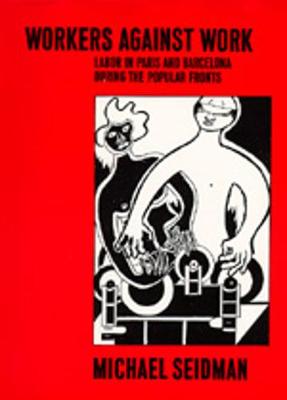Why did a revolution occur in Spain and not in France in 1936? This is the key question Michael Seidman explores in his important new study of the relations between industrial capitalists and working-class movements in the early part of this century. In a comparative analysis of Paris during the Popular Front and Barcelona during the Spanish Revolution, Seidman examines the strengths and weaknesses of the bourgeoisie in these two cities and traces workers' resistance to, and acceptance of, work. His emphasis on the continuing refusal to work challenges the dominant views of labor historiography and contributes to a general theory of revolutionary workers' control.
Seidman illuminates three crucial issues that have broad implications for the history of the twentieth century. His comparative approach delineates the nature of class confrontation in societies with different kinds of bourgeoisies or capitalist elites. He also shows how the differences between these elites affected the labor movements in France and Spain, and he demonstrates how rank-and-file workers actually responded to the revolutionary situation in Barcelona and to the advent of the reformist government in Paris.
A social history of acceptance and rejection of work, this book offers a new conceptualization of wage earners and a critique of work itself.
- ISBN10 0520069153
- ISBN13 9780520069152
- Publish Date 27 November 1990
- Publish Status Out of Print
- Out of Print 15 November 2006
- Publish Country US
- Imprint University of California Press
- Format Hardcover
- Pages 384
- Language English
